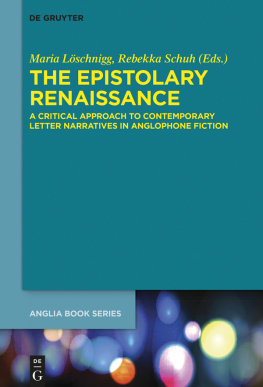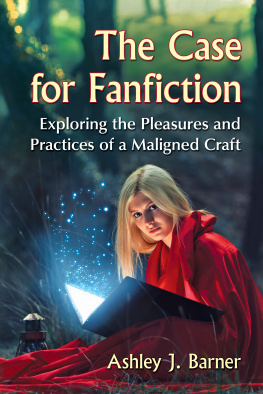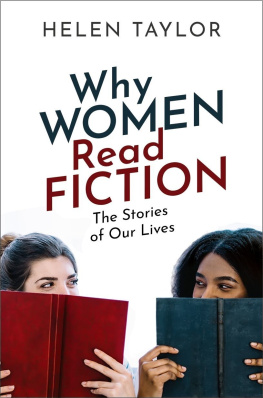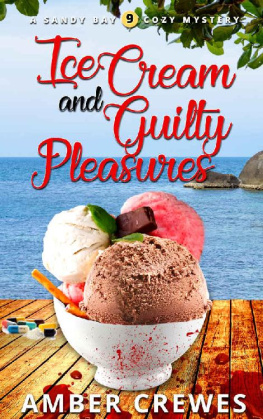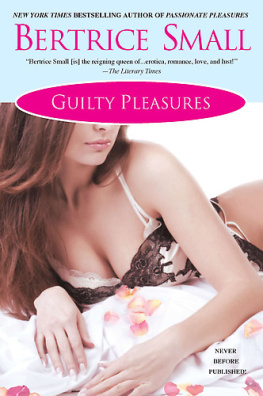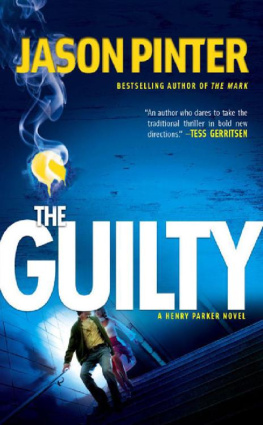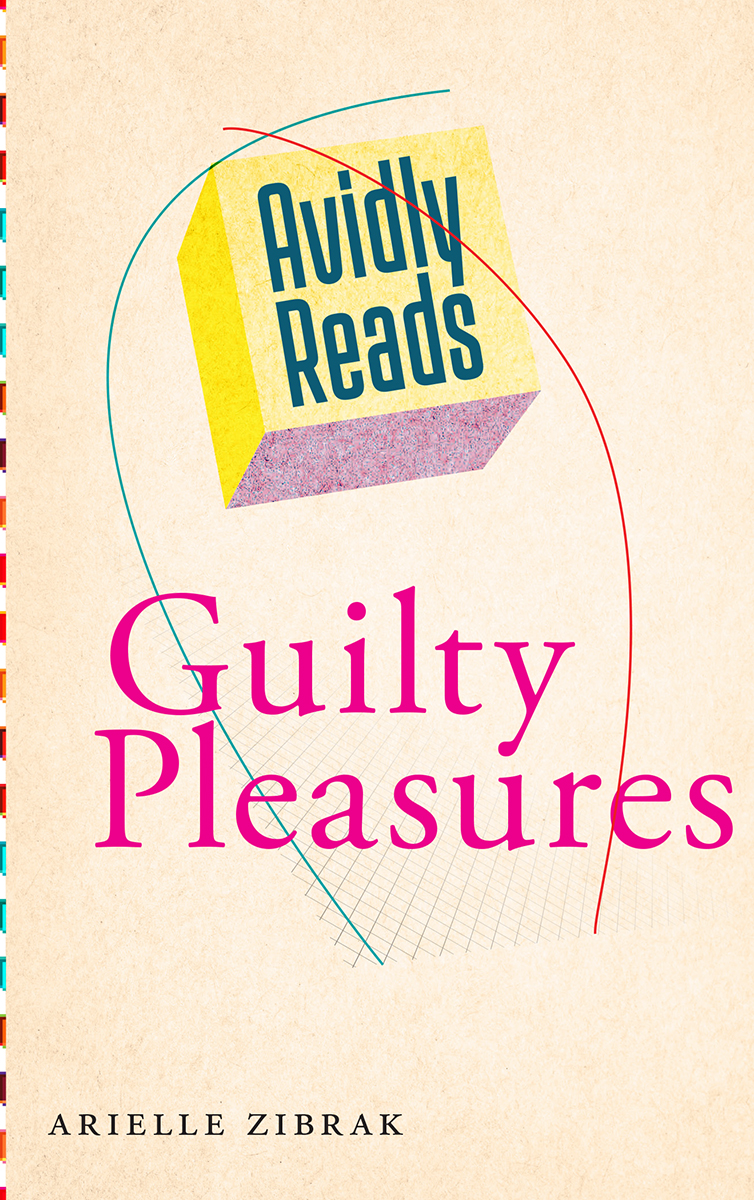
Avidly Reads Guilty Pleasures
Avidly Reads
General Editors: Sarah Mesle and Sarah Blackwood
The Avidly Reads series presents brief books about how culture makes us feel. We invite readers and writers to indulge feelingsand to tell their storiesin the idiom that distinguishes the best conversations about culture.
Avidly Reads: Theory
Jordan Alexander Stein
Avidly Reads: Board Games
Eric Thurm
Avidly Reads: Making Out
Kathryn Bond Stockton
Avidly Reads: Passages
Michelle D. Commander
Avidly Reads: Guilty Pleasures
Arielle Zibrak
Avidly Reads Guilty Pleasures
Arielle Zibrak

NEW YORK UNIVERSITY PRESS
New York
NEW YORK UNIVERSITY PRESS
New York
www.nyupress.org
2021 by New York University
All rights reserved
References to Internet websites (URLs) were accurate at the time of writing. Neither the author nor New York University Press is responsible for URLs that may have expired or changed since the manuscript was prepared.
Cataloging-in-Publication data is available from the publisher.
ISBN 9781479807079 (hardcover)
ISBN 9781479807093 (paperback)
ISBN 9781479807109 (consumer ebook)
ISBN 9781479807123 (library ebook)
New York University Press books are printed on acid-free paper, and their binding materials are chosen for strength and durability. We strive to use environmentally responsible suppliers and materials to the greatest extent possible in publishing our books.
Manufactured in the United States of America
10 9 8 7 6 5 4 3 2 1
Also available as an ebook
For H., for making a strong case for love
Contents
Anyone whos worth anything reads just what he likes, as the mood takes him, and with extravagant enthusiasm.
Virginia Woolf
The one way of not doing anything about a situation is feeling guilty about it.
Alan Watts
Because I didnt learn to read in school, I never learned which books were worth reading. Both of my parents were the first in their families to graduate from college. My mother majored in English, my father in philosophy. The walls in our little 1920s Tudor were lined with their hard-won college books. My moms loopy adolescent handwriting, which she retained into adulthood, boldly speculated about the characters in the margins; my dads more restrained scratchings noted references and defined terms. My parents and I didnt read together much past early childhood, but they spoke to me about books well into my adolescence through this cryptic marginalia. Sitting with their worn paperbacks, I felt closer to some version of them that I was otherwise convinced Id missed out on entirely; the love I longed to receive from them seemed visible, right there, expressed in the negative space of the pages. In this way, I learned early on that reading, even and maybe especially promiscuous reading, offers us love as an available pleasure. That insight shapes whats to come, in this book about the mixed emotions of our unruly media encounters.
By the time I was in junior high, Id read almost every book in the house. This included, most memorably, Fear and Trembling, Lolita, Shakespeares comedies and tragedies (but not historiesmy mom must not have taken that course), Thus Spake Zarathustra, Nausea, The Brothers Karamazov, David Copperfieldworks I enjoyed in part because most of them flew completely over my head. Reading them was like talking with someone much older and smarter who is also very good-looking. I chose Lolita as a subject for the fifth-grade book presentation I delivered in homeroom, somehow missing the sexual relationship in that novel altogether. At the time, I understood it as the story of an overprotective stepfather who takes his daughter on a very interesting vacation. My middle-aged, male homeroom teacher corrected me only on the pronunciation of the authors name.
There were other books on those shelves I recall reading with equal fascinationThe Joy of Sex, a biography of Michael Jackson (with full color photographs!), The Valley of the Dolls, Pet Sematary, The Bell Jar, and my most beloved If Life Is a Bowl of Cherries, What Am I Doing in the Pits? by Erma Bombeck. I was also hanging out at the library a lot. There was a version of myself I could be there, in the bookstacks, that I couldnt be anywhere elseor maybe its that I was thinking about the grown female person I would someday become. Id ride my bike to the local public library after school and wander the shelves, pulling out whatever volume had the most intriguing title, sitting down on the floor to read most of it there, and only occasionally taking books out. For some reason, I had and still have a lot of anxiety about losing or ruining library books and so have always preferred to own my own copies whenever possible. I think this is due, in part, to my fondness for reading while eating soup (my personal library also serves as a history of various soups consumed). But no matter, because the public library of my childhood hometown became off-limits to me in junior high after reports circulated of a pedophile lurking there and flashing young girls through the shelves. This is true: if you want to see it as a metaphor for the way girlish reading is haunted by the specter of dangerous desire, well, thats maybe another part of where this story is going.
Anyway, then my mom started taking me to what will forever remain my cathedral: a magical discount bookstore called the New England Mobile Book Fair. This store began as a van full of used bookshence the mobilebut by my formative years, it had expanded to a massive, high-ceilinged warehouse blindingly illuminated by fluorescent bulbs, where books were arranged neither by genre nor by author but by publisher and, within publisher, by ISBN. This method of stocking the books had a profound impact on my life.
Like the books in my house, which were arranged in no particular order whatsoever, the New England Mobile Book Fair suffered no generic predeterminations or qualifiers. Literary fiction, romance, mystery, nonfiction, self-help, humorthey were all more or less mixed together. Each volume had its own bits of wisdom to impart, its little jokes. They all equally allowed me to be alone in the presence of others. I loved them indiscriminately. I read from all of the genres listed above but did tend to gravitate more toward novels. My mother adopted the same rule for the bookstore that my father had pioneered for the candy store: I could pick five things. Just as at the candy story I had learned to select bagged gummies and Big League Chew over less generous offerings, regardless of flavor, at the bookstore I combed the shelves for the thickest works.
I learned to love novels that went on and on, mass-market paperbacks with text blocks thick enough for doodling on the soft edges, clunky tomes that ended up clocking a lot of hours in my backpack, their signatures falling out in chunks as the spinal glue dried and flaked off. Besides their virtues of economy, long novels were also a salve to the dread I routinely experienced upon realizing I was near done with a novel that was not a part of a series. It was only much later in my life that I discovered the pleasures of rereading; therefore, at this early point, the ending of a book meant to me the death of all it contained, a thought so unbearable that it nearly soured me on the whole experience altogether. But long novels postponed that dread, and having to experience it less frequently, even if more acutely for having known their characters so well, seemed to make it more bearable.
Next page

